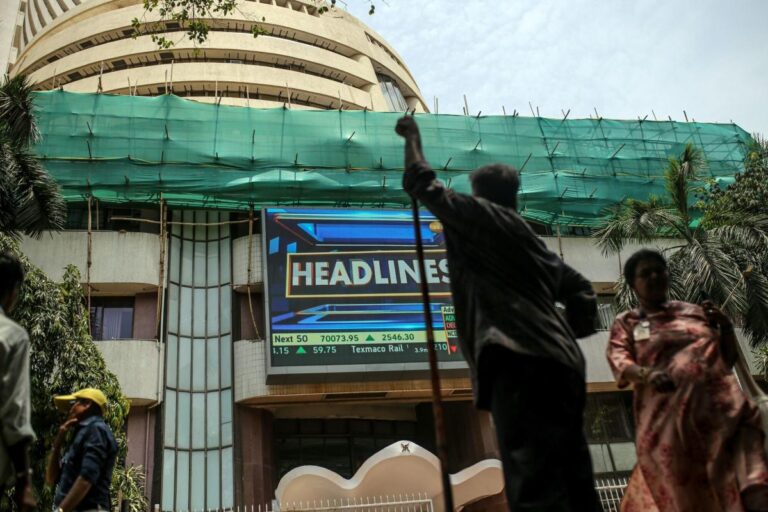(Bloomberg) — Emerging market stocks posted their biggest gain this year as manufacturing activity in China rose at the fastest pace since June 2022. Volatility across emerging markets following the election results sent the Mexican peso plummeting and the South African rand soaring.
Most read articles on Bloomberg
MSCI Inc’s index of emerging market stocks rose 2.3%, its biggest intraday change since November, led by Asian technology companies. A benchmark index of currencies rose 0.3%. U.S. Treasury yields fell.
China’s manufacturing activity expanded at its fastest pace in nearly two years in May, according to a private survey, contrasting with weak official data. Stocks held on to gains after U.S. manufacturing data for May came in weaker than expected, but orders fell the most in nearly two years, raising hopes of an interest rate cut this year.
The election continues to weigh on emerging market assets. The Mexican peso fell 4.2% after primary results showed the ruling party won both houses of Congress by large margins, raising concerns about greater state control over the economy and less checks on power. Mexican stocks were down 4.4% intraday.
Pre-election polls had shown the ruling Morena party’s candidate, Claudia Scheinbaum, holding a large lead, but investors were surprised by the congressional results, which could see the party win a supermajority.
Read more: AMLO protégé Scheinbaum becomes Mexico’s first female president
The Mexican peso is “moving against the trend of other Latin American currencies like the BRL and CLP,” said Marco Oviedo, senior strategist at XP Investimentos. The Morena party’s full control of Congress, which would allow it to amend the constitution, is seen as a “big negative.”
Meanwhile, in South Africa, the rand rose after swinging back and forth as investors braced for more turmoil after last week’s election produced no clear winner and the outcome of coalition talks remains highly uncertain, leaving the African National Congress without a parliamentary majority for the first time since coming to power three decades ago.
Meanwhile, Indian stocks soared to record highs, while the rupee and government bonds also rose after exit polls showed a landslide victory for Prime Minister Narendra Modi’s ruling party.
Read more: PM Modi benefits from geopolitical situation favourable to India: TOPLive Q&A
‘Unfriendly policies’
Attention this week will also be on prospects for the European Central Bank to start cutting interest rates.
“In addition to international central bank meetings this week, markets will be focusing on the impact of the election results in Mexico and South Africa,” ING strategist Chris Turner said in a note. Risks include Mexico’s Morena party trying to use its parliamentary majority “to pursue market-unfriendly policies.”
Deutsche Bank recommended a tactical long position in the dollar/random, saying risks surrounding South African coalition talks have not been fully priced in by markets.
“The political process remains likely to be disrupted in the coming weeks,” Deutsche Bank said in a note. “Even if an ANC government is ultimately elected again, it is likely to be weak and relatively unstable, raising concerns about policy delivery.”
–With assistance from Davison Santana.
Most read articles on Bloomberg Businessweek
©2024 Bloomberg LP

